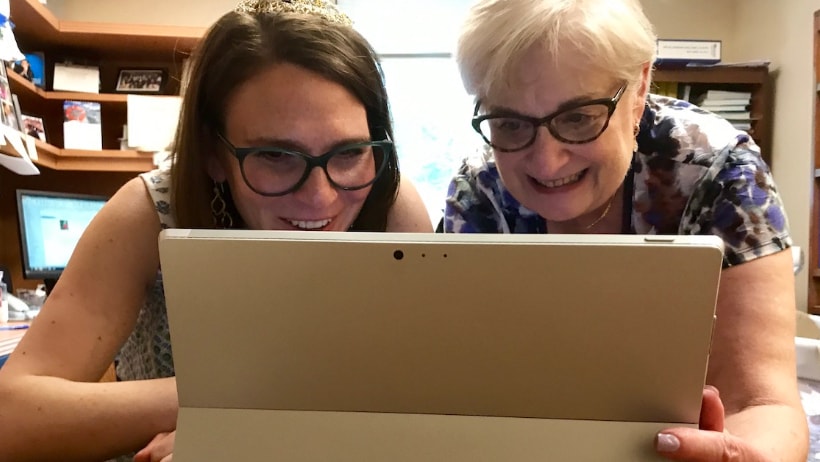As the daughter of a CPA, my childhood years were always divided into “tax season” and “not tax season.” From January 1 through April 15, it was known in my house that my mom was going to be focused on work. We would still have dinner as a family, and then she’d sit down at the dining room table, which was her makeshift tax season home office, and start clicking away on the adding machine. Her fingers moved at what I thought was lightening speed on the number pad, adding, subtracting, looking for advantages here, deductions there.

Since tax returns were due not long ago, our household earnings and expenditures are still fresh on my mind. It is a bit sobering to look at budget line items and realize what we actually spend on luxuries like dining out, coffee (because . . . Portland), and entertainment, compared to what we give to charitable causes. Of course we donate annually to various worthy organizations, but in looking back at the previous year, did these align with what we spent on our own extravagances? In other words, did I give as much as I enjoyed?
There is a balance to strike between my desire to help the world through financial contributions and my desire to enjoy myself and the fruits of my labor. This week we read a double Torah portion, Acharei Mot and Kedoshim. Acharei Mot picks up the narrative after Aaron’s son’s are killed for offering “strange fire” to God. The laws in this section of text deal mainly with Yom Kippur and the proper relationships we are to have in our lives. Parshat Kedoshim features the laws called the “Holiness Code,” marked with the ways in which we should respectfully treat one another in our community.
In Acharei Mot we begin with the offerings made on Yom Kippur, overseen by the high priest. We read that two goats are to be offered; one is designated for the Lord and the other for “Azazel,” which is sometimes translated as one that is “sent away,” other times as a “scapegoat.” A Hasidic commentary suggests this split teaches us that we should spend as much time, money, and energy on God’s purposes as we do on earthly pleasures. Literally, it means that these two goats are equal. In a broader sense, when we go to tally up our year, we should see a balanced ledger, especially in terms of giving to ourselves and giving to our community. Acharei Mot literally means “after death,” and Kedoshim means “holiness.” Taken together, we can ensure our holiness endures beyond this lifetime if we hold ourselves accountable to improving our world.
-Rabbi Eve Posen
Source: With God as My Accountant – Parshat Acharei Mot-Kedoshim 5777



